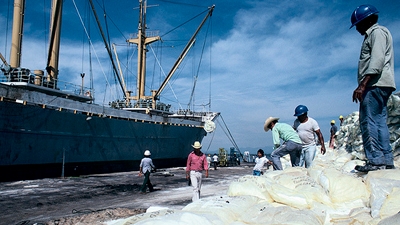Panama City – Latin America is in a position to continue to drive growth and to be part of the solution to global problems in the coming years, said World Bank Vice-President for Latin America and the Caribbean Hasan Tuluy.
Expressing his optimism about the future of the region, Tuluy reported that economic growth is expected to reach 3.5% in 2013 and a rate approaching 4% in the medium term.
He highlighted the performance of individual countries such as Panama, Peru and Chile, which have exceeded the average growth rate for the region, with rates of up to 10% in the case of the Isthmus of Panama.
Tuluy is currently in Panama City to participate in the Annual Meeting of the Boards of Governors of the Inter-American Development Bank (IDB) and the Inter-American Investment Corporation (IIC).
The high-level official said his confidence stems from Latin America’s well-deserved status as a leader in linking economic growth with social inclusion – with achievements such as the sharp decline in the poverty rate and a 50% expansion of the middle class, or some 50 million people, during the past decade.
However, Tuluy warned that the region’s main challenge is what he calls the “battle of productivity,” since the goal is not only economic growth, but achieving it in the most efficient, fairest way possible.



